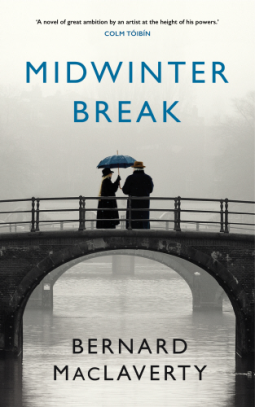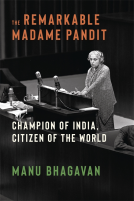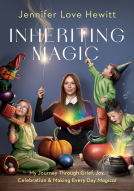
Midwinter Break
by Bernard MacLaverty
This title was previously available on NetGalley and is now archived.
Send NetGalley books directly to your Kindle or Kindle app
1
To read on a Kindle or Kindle app, please add kindle@netgalley.com as an approved email address to receive files in your Amazon account. Click here for step-by-step instructions.
2
Also find your Kindle email address within your Amazon account, and enter it here.
Pub Date Aug 03 2017 | Archive Date Sep 02 2017
Random House UK, Vintage Publishing | Jonathan Cape
Description
A Guardian / Sunday Times / Irish Times / Herald Scotland / Mail on Sunday Book of the Year
Winner of the Bord Gáis Novel of the Year
‘Midwinter Break is a work of extraordinary emotional precision and sympathy, about coming to terms – to an honest reckoning – with love and the loss of love, with memory and pain. Full of scenes that are rendered with exquisite accuracy and care, allowing the most detailed physical descriptions to be placed against the possibility of a rich spiritual life, this is a novel of great ambition by an artist at the height of his powers.’ Colm Tóibín
Sixteen years on from his last novel, Bernard MacLaverty reminds us why he is regarded as one of the greatest living Irish writers. A retired couple, Gerry and Stella Gilmore, fly from their home in Scotland to Amsterdam for a long weekend. A holiday to refresh the senses, to do some sightseeing and generally to take stock of what remains of their lives. Their relationship seems safe, easy, familiar – but over the course of the four days we discover the deep uncertainties which exist between them.
Gerry, once an architect, is forgetful and set in his ways. Stella is tired of his lifestyle, worried about their marriage and angry at his constant undermining of her religious faith. Things are not helped by memories which have begun to resurface of a troubled time in their native Ireland. As their midwinter break comes to an end, we understand how far apart they are – and can only watch as they struggle to save themselves.
Bernard MacLaverty is a master storyteller, and Midwinter Break is the essential MacLaverty novel: accurate, compassionate observation, effortlessly elegant writing and a tender, intimate, heart-rending story – but it is also a profound examination of human love and how we live together, a chamber piece of real resonance and power. Forty years on from his first book, Bernard MacLaverty has written his masterpiece.
Advance Praise
MacLaverty is a sweetly astute writer, a master of fine detail, compassing the quotidian, the intimate and the sacred. Midwinter Break shows us how ordinary and immense love can be.
Anne Enright
Midwinter Break is a work of extraordinary emotional precision
and sympathy, about coming to terms - to an honest reckoning - with love
and the loss of love, with memory and pain. Full of scenes that are
rendered with exquisite accuracy and care, allowing the most detailed
physical descriptions to be placed against the possibility of a rich
spiritual life, this is a novel of great ambition by an artist at the
height of his powers.
Colm Tóibín
MacLaverty's prose is deceptively simple and rewardingly
straight-forward and efficient. But what he writes about in this much
anticipated novel – the resilience and stress-lines of human love
experienced over much time – is anything but simple and
straight-forward. It’s the stuff of life.
Richard Ford
Available Editions
| EDITION | Other Format |
| ISBN | 9781911214212 |
| PRICE | £14.99 (GBP) |
| PAGES | 256 |
Average rating from 34 members
Featured Reviews
 Sue B, Reviewer
Sue B, Reviewer
How emotionally draining this book turned out to be. It touched me on levels I hadn’t even considered before, perhaps because I am fast approaching the age of Gerry and Stella, and have also been married ‘for a protracted period’.
It’s a fact, people change over time. They develop new interests or existing ones come more to the fore and might not be shared with a long-term partner. Personality foibles that seem charming and perfectly tolerable in youth can become irritating, or it may be that partners become less accommodating of each other.
Gerry and Stella separately have come to wonder what they have done with their lives. Gerry’s years as an architect have not left a noticeable mark on the landscape - disappointed, he has withdrawn into short temper, insensitivity and disdain for others, and too much drink. In Stella’s case, a resurgence of the religious faith of her childhood, shrugged off in early adulthood, is causing her to question whether it’s not too late to live a better life, make some kind of difference to the world around her. Their interests seem to be diverging so widely that they need to consider whether they can continue together.
We witness their weekend in Amsterdam in heartbreaking detail - their very different agendas, the little (and not so little) deceptions, their relief when a confrontation is avoided and a few hours alone achieved - yet their underlying love for each other glimmers on. The author’s insight is absolute. The incident with the earring in the Anne Frank house will stay with me forever. The writing is out of this world - I can’t believe I haven’t come across his work before but I’ll be seeking out his previous novels as a matter of urgency.
Thanks so much to Random House Vintage via NetGalley for the opportunity to read and review.
 Nick B, Reviewer
Nick B, Reviewer
Bernard MacLaverty is a sublime writer and Midwinter Break is as good as anything he has ever written.
Gerry and Stella Gilmore are a long-married couple of pensionable age, living in Glasgow but originally from the north of Ireland. Gerry is fond of a nightcap and Stella has quite a strong Catholic faith. They know one another inside out. They have decided to take a mid-winter break to Amsterdam, perhaps to celebrate their enduring marriage.
Gradually, and gently, we start to see the flaws in the characters emerge. This is done with such grace; the reader knows, likes and empathises with both Gerry and Stella; the flaws that emerge are real, but we see the real people beneath and they are likeable. As they wander the streets of Amsterdam - both together and separately - they start to discover more about themselves and each other. Partly, they explore the present day, partly their lives in Glasgow, and partly their lives in Ireland.
This is a novel about ageing. I recognise myself in Gerry. In fact, the similarity between Gerry's life and my own is uncanny - right down to the night-time leg cramps. There are themes of unfulfilled ambition, fatigue, closure. There is guilt, including the nagging guilt about minor slights and mistakes from years ago. But also there is lots and lots of love. Not bodice ripping young love, but old, mature love that is too often taken for granted.
There is change, often not for the better. The change of a nature of a community, the change brought by significant events, and the change brought simply by time, with two people slowly ceasing to be who they once were. The questions that arise are whether to resist or accept those changes. It is an illustration of the Serenity Prayer:
"God, grant me the serenity to accept the things I cannot change,
Courage to change the things I can,
And wisdom to know the difference."
Midwinter Break is deeply moving. It speaks of truths that many of us will face some day soon.
 Geraldine S, Educator
Geraldine S, Educator
This is a beautiful tale, told from the perspectives of both Gerry and Stella who visit Amsterdam for a weekend break in January. They have been married for many years and seem to still love each other but life has brought disappointments and heartache and perhaps this is the chance to overcome these. The narrative offers finely sketched detail of the long weekend with images of the city, its people and places as well as the hotel and the airport all carefully crafted. Gerry is dependent on Stella but also on alcohol, Stella feigns ignorance of the extent of his alcohol dependence while herself wishing for a new and alternative lifestyle. Big themes of love and religion are explored through minute details of a postcard for their grandson, silk pyjamas, padlocks on a bridge and an ear-ring. I have enjoyed all Bernard MacLaverty's work and this is one I shall both recommend and read again.
 Paromjit H, Reviewer
Paromjit H, Reviewer
This is a profoundly moving and perceptive examination of the anatomy of a long marriage. Gerry and Stella Gilmore are retired, now living in Scotland, and facing the midwinter of their lives and their marriage. Gerry, once an architect, a mediocre one in his estimation, cannot get through a day without his drinking but his love for his wife is plain to see. Stella was a teacher, but her son and grandson live in Canada, leaving her feeling she needs more in her life and Gerry is not enough. They fly to Amsterdam, ostensibly for a long weekend, with Stella harbouring a hidden agenda. They explore the city both as a couple and separately. Stella feels the best of her was inspired by her Catholic faith, and she is in search of a more spiritual religiously guided life. On a previous visit to the city, she encountered the Dutch order of the Beguines. Gerry has never taken her religious faith seriously, and as she contemplates a different future, an honest look at each other and their marriage is inevitable.
Gerry and Stella have an ease with each other that speaks of an intimate, close and long relationship, enjoying an active sex life with each other. Along with this are their incommunicative silences, secrets, deceptions and everyday frustrations with each other. The compromises that go into the reality of a marriage are beautifully captured. Both remember events from the Irish troubles, that Stella was personally affected by when she was pregnant. Her body has the physical and emotional scars from what happened to her. Her focus on a religiously devoted life is driven by a pledge Stella is haunted by and feels she failed to honour. This becomes clear as Stella becomes aware that the future she is planning may be out of her reach. What is to become of her? What choices will Stella make? Will their marriage survive?
The story takes place over the 4 days of the Amsterdam break. MacLaverty writes with depth and sensitivity about the strengths and frailties of a marriage entering its twilight years. His psychological understanding of his characters and relationships has a truly authentic feel and is what makes this book such a superb accomplishment. His approach is understated, this is not a novel with drama or fast pacing. If that is what you are looking for, you will be disappointed. A thought provoking and brilliant read. Many thanks to Random House Vintage for an ARC.
 Ali T, Reviewer
Ali T, Reviewer
A beautifully nuanced story. Warm, tender and funny, as well as moving.
Stella and Gerry, in late middle age are having a break in Amsterdam. They have the kinds of habits that only develop over a long marriage – kissing in a lift if they’re on their own, always holding hands to cross roads. Then there’s ‘ailment hour’ when they devote no more than sixty minutes to their various aches and illnesses. Gerry’s a retired architect and sees life in terms of space and distance; Stella is more spiritual and has reached the stage where she can’t live with Gerry’s problems with alcohol. They spend time together and apart visiting the sights of Amsterdam and keeping warm, and as Gerry keeps up a constant stream of jokes and gently mocks the religion that Stella has been turning to more and more, his alcoholism is outlined in all its self-deceptive steps. Drink brings a ‘distancing’ for Gerry; he can ‘spread his wings, rising on the thermals of the first couple of glasses’ but he’s constantly monitoring in case Stella sees him and, making sure of his ‘Traveller’s Friend’, to know he has access to alcohol. He knows his health is suffering and he sees ‘stars against the night sky. Marcasite jabs and darts.’ He fears he might have a stroke.
Looking at a painting together of The Jewish Bride Stella describes it as a painting about touch: ‘Hands. Hands everywhere,’ and goes on to say ‘You can see he cherishes her… but she’s not so sure…’ which also describes their own relationship. She wants a change and one reason she’s chosen Amsterdam is to explore the possibility of joining a women’s religious community. For her the break of the title could be more permanent than a holiday, but ‘how could changes be made at her age? To even think of leaving seemed such an impossibility.’
The point of view moves seamlessly from Stella to Gerry, and from present to past, showing the intensity of their relationship when they first met: ‘To her ear his speech seemed fresh-minted’ and he remembers how her skin was ‘flawless, translucent, smooth. It seemed to have light coming from it in the dark.’ Particularly poignant when a separation is a strong possibility. We find out that when Stella was pregnant, during the Troubles in Ireland, she was accidentally shot – ‘Death had winged her.’ In hospital she’d vowed to ‘devote the rest of my life to You’ if the child lived. Now she suffers from flashbacks to the shooting, and also guilt because she hasn’t kept her side of the promise. She wants to ‘live a more devout life’ and tells Gerry: ‘we’ve cut the cloth of our lives wrongly. It doesn’t fit.’
Towards the end of the novel, their flight home delayed for hours because of snow, they reach an uneasy compromise. They’re so much part of each other and Stella knows he’ll only quit drinking if she helps him. For Gerry ‘her presence was as important as the world. And the stars around it. If she was an instance of the goodness in this world then passing through by her side was miracle enough.’
Midwinter Break is a subtle and beautifully written novel.
Readers who liked this book also liked:
Publishers Lunch
General Fiction (Adult), Nonfiction (Adult), Teens & YA
Jennifer Love Hewitt
Biographies & Memoirs, Nonfiction (Adult), Parenting, Families, Relationships


















